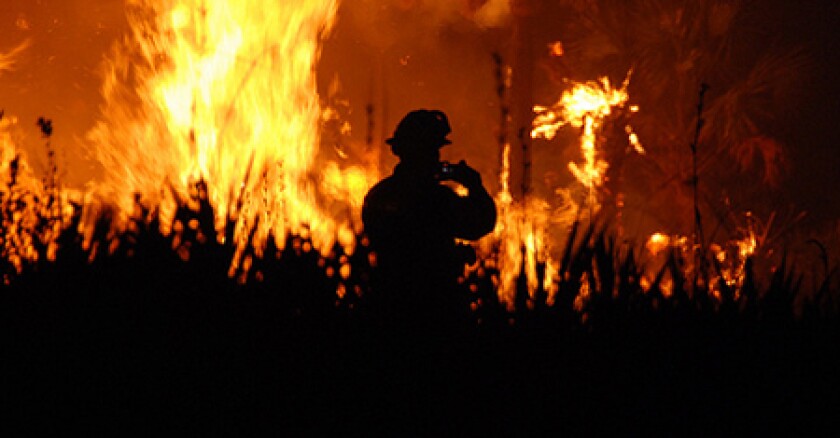Several proposed laws with potential significance for IT vendors did manage to clear the statehouse this session and are headed to Gov. Gavin Newsom’s desk, where he’ll have until Oct. 10 to sign or veto them. Not surprisingly, they reflect some of the state’s most urgent areas of need:
- State Senate Bill 109, from Sen. Bill Dodd, D-Napa, proposes creating the Office of Wildfire Technology Research and Development within the California Department of Forestry and Fire Protection (CAL FIRE), under the direct control of the department’s director. The office would be charged with “studying, testing, and advising regarding procurement of emerging technologies and tools in order to more effectively prevent and suppress wildfires throughout the state, through specified activities, as provided.” The bill also would stand up the nine-member Emergency Wildfire Technology Research and Development Review Advisory Board, which reviews the new office’s activities.
- SB 456, from Sen. John Laird, D-Santa Cruz, uses as its foundation an executive order from Gov. Jerry Brown that established the Forest Management Task Force. It would rename that group the Wildfire and Forest Resilience Task Force and require that task force — including representatives of the California Natural Resources Agency and CAL FIRE — by Jan. 1 to “develop a comprehensive implementation strategy” to achieve the goals in its action plan. And the bill would drive “innovation and measuring progress in achieving these goals” — goals that would include “an applied research plan” and “a forest data hub to serve as (a) multi-institutional clearinghouse for supporting, integrating, evaluating and synthesizing reporting and monitoring efforts.”
- Assembly Bill 1352, from Assemblymember Ed Chau, D-Monterey Park, would extend the reach of existing law on independent security assessments. If signed, it would authorize the California Military Department “at the request of a local educational agency, and in consultation with the California Cybersecurity Integration Center, to perform an independent security assessment of the local educational agency, or an individual schoolsite under its jurisdiction.” The cost of the assessment would be paid by the local educational agency, per the bill.
There’s been considerable high-level focus on information security this year and during this state budget cycle. The California Department of Technology’s enacted Fiscal Year 2021-2022 budget includes $21 million from the General Fund to pay for 49 Office of Information Security positions that had been funded through the Technology Services Revolving Fund. The change, per the budget, is aimed at sustaining “the Audit Program’s standard four-year audit cycle without cost recovery ramifications” to affected state entities, thereby “ensuring state entities can focus their limited resources on critical security internal management and operational efforts to enhance their security infrastructure.” - AB 825, from Assemblymember Marc Levine, D-San Rafael, would somewhat refine the Information Practices Act of 1977, which requires agencies that own or license “computerized data” to disclose system security breaches to residents whose personal information was compromised. AB 825 would specify that personal information in these situations includes genetic data, which it would define as “any data, regardless of its format, that results from the analysis of a biological sample of an individual, or other source, and concerns genetic material, as specified.” The bill would place new requirements on local agencies and, because of this, would effectively impose a state-mandated local program.
Like others this session, two more bills would seek to increase broadband access statewide.
- AB 537, from Assemblymember Bill Quirk, D-Hayward, would standardize “a collocation or siting application” for “certain wireless communications facilities” to Federal Communications Commission rules and require that a city or county “not prohibit or unreasonably discriminate in favor of, or against, any particular wireless technology” — ensuring, the Little Hoover Commission said Tuesday in a news release, “that local jurisdictions approve of telecommunications projects within reasonable time periods and utilize permitting best practices.”
- SB 378, from Sen. Lena Gonzalez, D-Long Beach, would require local agencies — all cities, including charter cities — allow “except as provided, microtrenching for the installation of underground fiber if the installation in the microtrench is limited to fiber.” The bill also pertains as needed to “a local agency with jurisdiction to approve excavations ... .” This, the commission said, would lower broadband installation costs and speed deployment.








